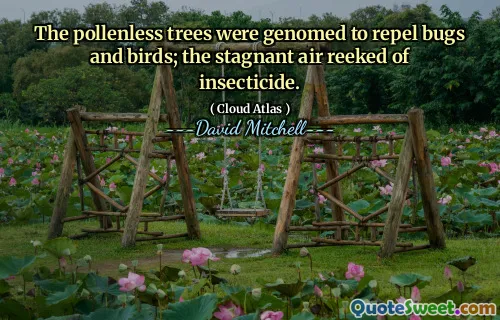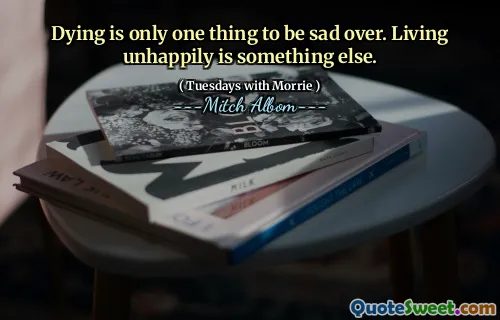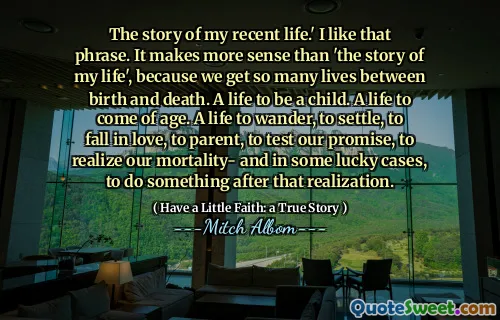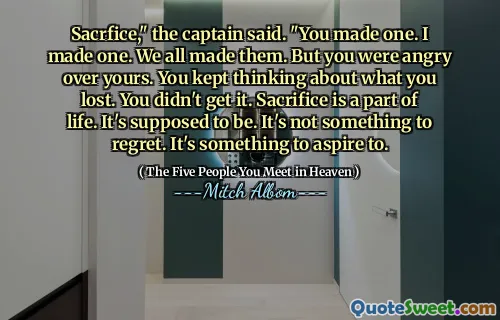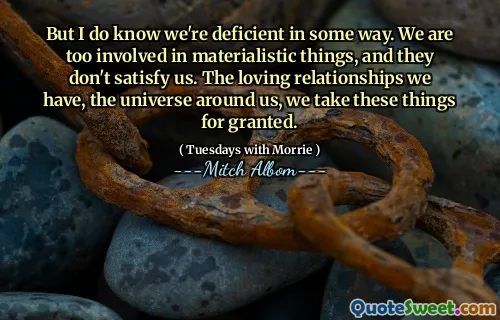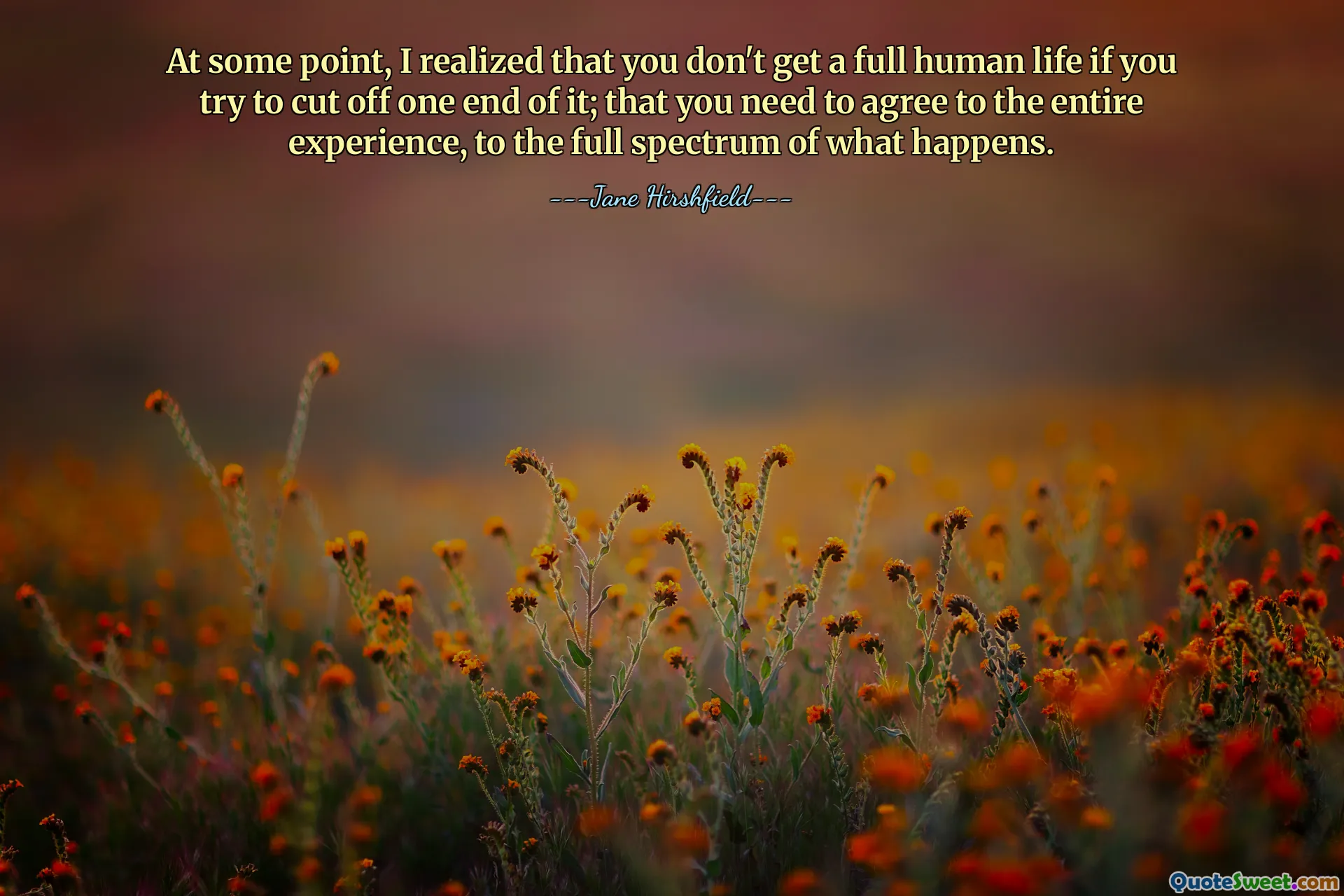
At some point, I realized that you don't get a full human life if you try to cut off one end of it; that you need to agree to the entire experience, to the full spectrum of what happens.
This quote resonates deeply with the understanding that life is a complex tapestry woven from both joy and sorrow, success and failure, triumph and hardship. Embracing the full spectrum of experiences is essential to truly live a human life in its entirety. Often, we find ourselves tempted to avoid pain, discomfort, or vulnerability, believing that rejecting certain aspects will make life easier or more manageable. However, such avoidance can lead to a superficial existence, stripping away the richness that contrasts and deepens our appreciation for the positive moments.
In acknowledging that the full range of experiences is necessary, the quote emphasizes acceptance and resilience. It suggests that growth and authentic living come from engaging fully with life's unpredictable, sometimes uncomfortable, realities. By accepting pain and loss as integral parts of life, we develop a greater capacity for empathy, strength, and wisdom. This holistic approach encourages us to confront difficult emotions and situations rather than escape from them.
Furthermore, this perspective fosters gratitude and compassion, both for ourselves and others, as it recognizes the universality of struggle and joy. It is through embracing the entirety of human experience that we find meaning, authenticity, and a deeper sense of connection to the world around us. Ultimately, life’s richness stems from its contrasts—embracing both light and darkness enables us to live more fully and genuinely.







